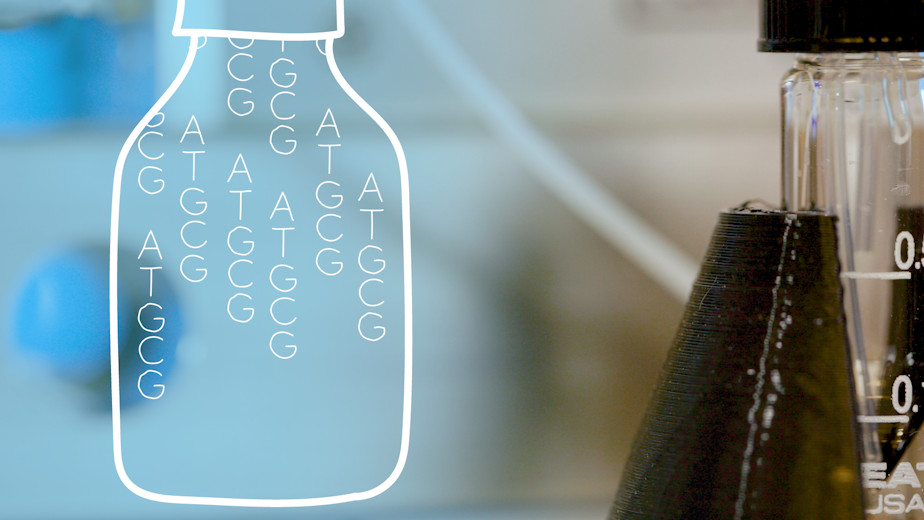Forget the cloud, your selfies may be stored in DNA someday

Researchers in Seattle have found a way to store massive amounts of data in a very small space.
A team of researchers from Microsoft and University of Washington are converting computer code into DNA molecules in order to store information. So far they've stored words, photos and videos.
In other words, they convert 1s and 0s of digital data into the As, Ts, Cs and Gs that make up DNA's building blocks.
During a recent test, a team from Microsoft and the University of Washington was able to encode the word "hello" in DNA. This test was different from past versions: It was fully automated, requiring no human labor.
UW professor Luis Ceze said this simple test, which took 20 hours, proved the technology works.
"The world is producing a lot of data, and we need somewhere to put it. And we're producing so much data that mainstream storage technologies aren't keeping up," Ceze said.
"DNA is a good alternative because it's very very dense, and you can put a lot of information in a unit of volume."
The long vision, according to Ceze, is for companies like Microsoft to use DNA to store information that people send to the internet cloud. Microsoft, for example, may use it with its Azure cloud computing system.
More research will have to happen before companies can actually use DNA to store data.
Ceze said they are trying to invent what a future computer system could look like. Current computer systems are made up of transistors and electronics, but those will have limits, especially in regards to size.
"We have to invent new ways," Ceze said. "It's kind of amazing that nature has evolved molecules that we can use to potentially make future computer systems. So I find it very exciting."
The research was published this month in Nature Scientific Reports.




